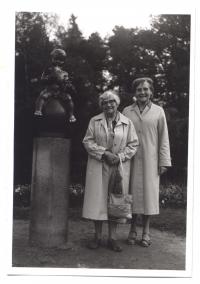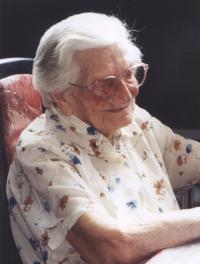I took my job as a matter of course That we are in a war and I have to heal people I didn’t care about anything else
Gertruda Frankensteinová was born on 16th of October 1910 in Český Krumlov. Her father was an engineer at the Czech Railways. When Gertruda was three years old, the family moved to Žatec where she later attended a Czech basic school and a German grammar school. Her father died very soon. Gertruda decided to study medicine at the German University in Prague. She graduated in 1936. In 1939 she went to Poland with the Interhelp program and after the break of the WWII she moved on to the Soviet Union together with her husband, doctor Engel, and they worked in local hospitals. When the Czechoslovak army began to form in Buzuluk, they joined in. Gertruda Engelová took care of the immobile cases. After the War she worked in the Central Military Hospital. After 1949 she worked as a company general practitioner in a factory.


